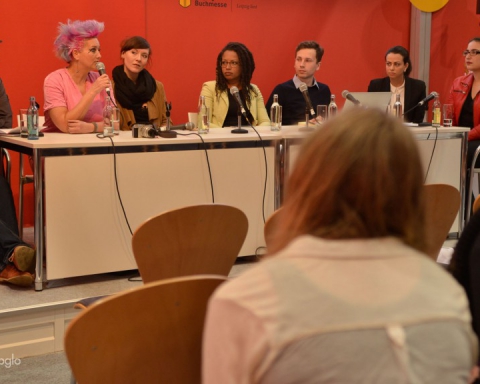The original is unfaithful to the translation.
– Jorge Luis Borges
In 1985, Argentine publisher Hyspamerica asked famed short-story writer and pre-cursor of Magic Realism, Jorge Luis Borges (1989) to write a personal library. This would mean curating some 100 great works of literature, chosen specifically by the famed author with written introductions.
Borges was, by this time, blind but managed to make it to 74 before dying of liver cancer in 1989. It proved to be quite an eclectic list but what else could you expect? Coming from a man whose tastes merged low and high, Germanic, English and Spanish, Borges absorbed all kinds of genres, assembling tiny masterpieces, literary mosaics that were intricately influenced by the likes of H.G. Wells, Rudyard Kipling, William Shakespeare, Arthur Schopenhauer, Wilkie Collins and G. K.. Chesterton (as well as Spinoza, Kierkegaard, Ibsen, Kafka and so on). His mind was an encyclopedia of tastes reflecting as much his interior life as the style he personally crafted.
For me, always the admirer, believing like Borges that paradise is a kind of library, I read not so much to cross off books on a reading list but to remember and visit other cultures. Borges could read Spanish, English and German, having had a continental education. He felt equally at home with Hamlet as he did with Don Quixote while seemingly proscribing the solemn pessimism of Schopenhauer yet enjoying the musing charm of Chesterton.
I admire that he could read so extensively and in the language of the book’s original. Being a library-and- bookstore-wanderer in Germany, I love any book shelf and believe literature in its purest form arises from the original language. When I have read Ivan Bunin, Joseph Roth and Adam Zagajewski in their originals, maybe I can consider a good part of my life complete. I don’t know.

For me, I think of Borges’ personal library and I think in turn of what I might call a personal language or a language, at best, made up of the most beautiful words. Yet, at this point in my literary life, it would be terribly incomplete.
I feel we all in our own way derived from our mother tongue; it connects us and forever roots us to our first form of expression. But I also feel there is beauty in reaching out to other languages, to see the world through the eyes of others’ words.
And over the years, I have begun to collect words, to live with them the way you might live with the memory of a good book or poem. I associate these words with experiences, mostly literary ones, either learning the word through an introduction in a translated work or scanning the pages of a bi-lingual book of prose or poetry.
I know I could never really create a personal language, that this might verge on sounding insane, like the character of Salvatore, played by Ron Perlman in The Name of the Rose, babbling a mixture of many tongues, yet these words in themselves have something lovely to offer, in and of themselves.
So here is a part of my personal language, an annotated list of words, not very long but long enough at this point:
Toska (Тоска)
At the top of my list is the Russian word that covers all forms of longing, melancholy and loss. Even Vladimir Nabokov, a man at home in both English and his native tongue, balked at the idea of translating such a word. For on the one hand, he noted, there is the element of spiritual anguish, “…often without a specific cause. At less morbid levels it is a dull ache of the soul, a longing with nothing to long for, a sick pining, a vague restlessness, mental throes, yearning.”
One could add nostalgia, love-sickness, ennui and boredom but it would be all these things and yet something else, something entirely indivisible. For me, in all, it is the sadness of not knowing why you are sad.
![Skadi's Longing for the Mountains. By W.G. Collingwood (1854 - 1932) [Public domain], via Wikimedia Commons](https://leipglo.files.wordpress.com/2015/06/skadis_longing_for_the_mountains.jpg?w=300)
Toska, I would say is both the ecstasy and bewilderment of melancholy. You want to shrug your shoulders against the universe, to sigh with the mystery and yet nurture the doubt that is like a bruised part of your soul.
Sehnsucht
My favourite German word is poorly translated by “yearning” or “longing” in English. For me, it goes a bit beyond.
On the one hand, there is a feeling of being on a metaphysical journey when you speak the word, that it isn’t just about the physical world, that Sehnsucht aspires to the place beyond a moral law or Kant’s starry heavens. You feel Sehnsucht especially in Rilke’s early poems, his Stundenbuch (Book of Hours). The search, the ‘sucht’ is a mere starting point and we are all starting points for our own experiences. And yet, we are limited by our physical bodies. If only we could rise above mere flesh at times, to crave without consolation, to float through ideas…
For me, the idea within the word is that you are always to be nourished by the quest and the wonder as opposed to being satisfied by an answer.

Sehnsucht belongs to German poetry but it is an experience we all know. I think we get a sense of it when, after all the drinks are finished, all the conversations are over, when we wake before our partners, our lovers and stand alone early on a Sunday morning at the window, staring down at a rainy street. Even the atheists have to wonder and though we may dream there is no god, we cannot dream away wonder.
So, between the irrational and disrupted complacency, there is Sehnsucht, that irrepressible ache for lost worlds, a nostalgia for the golden ages the philosopher of religions, Mircea Eliade wrote about in his tomes.
Pokój
Pronounced ‘POH-kwee’ – the Polish word means both ‘room’ and ‘peace’. My love for this particular word stems from a Pascal quote. In his Pensées, the famed philosopher and mathematician wrote: “All human evil comes from a single cause, man’s inability to sit alone in his room.”
For me a room is peace. It is nothing else and I love that the Polish language has merged the two concepts into a single word. It is more natural than anything I can think of.
My needs are basic – I only require a quiet room. In the King James Version of the Bible, Jesus is translated as saying “…in my Father’s house there are many mansions” (John 14:2). Though the word ‘mansion’ suggests an expansive great place, a literal ‘room’ or space or ‘dwelling space’ for all of us, I prefer the quieter idea that a room is our sole source of contentment.
Yet I couldn’t imagine living in Russia during the time of Stalin where many people were forced to share apartments, where you had to live in the same room as another person, let alone with a couple or family. And still, I cannot imagine living in a mansion or a palace. Not that I would be bored in such a space but to be in a place of grandeur you are also in a place of distraction. All those castles along the Rhine, all those McMansions in the United States, eating up electricity bills, how impractical for their uselessness and emptiness!
Virginia Woolf wrote of a room of one’s own but there was a definite feminine slant to her series of lectures. A room or, the Polish Pokój is all one needs. If that room has a desk, a bed and many books, it is peace, it is paradise. You don’t need to wander far and maybe yes, all human illness, all human foibles stem from not sensing the peace in a single room. We can find a treasure within ourselves in the rooms we cultivate.
And in this I am reminded of the Russian saying: “Visiting friends is good but coming home is better.”
That is, coming back to your ‘room’.
My last word is a tie between the Dutch gezellig and slaape lach.
After the melancholy, the yearning and the peace, you need the company of others. We must return to others, to share ideas, to talk, to learn and feel the universal beyond ourselves.
And to laugh…
For the Dutch gezellig cannot cross the language divide. In English, it is palely translated as ‘coziness’ and ‘familial comfort’. It is that, yes, of course but once again, more, much more.
Gezellig is being in-sync with the moment and in-sync with others, to feel the bonds of good food, beer and wine and good words. It is to feel time bend a little, when you are not so much participating, not so much encountering but spiritually breathing the experience of a moment. It could be you are in a restaurant or by a fire or simply having a coffee with a friend and there is that gezellig (please, here, you must attempt the guttural Dutch ‘g’ – ghhhuhh-zellighhk).
While slappe lach is that moment when something makes you laugh so hard you feel that loss of breath, that you are completely lost in mirth. Something, something so simply obviously yet so beautifully funny, the tears emerge at the corners of your eyes, your stomach muscles tighten and your jaw actually hurts.
It is a laugh that makes you literally slap at your knee.
God, how wonderful it is, how fleeting but… god, you reel from it, you massage your stomach and wonder a little why you got so lost in the hilarity but then you are taken over again.
But so it is.
And these words that make me love the languages they come from.
So it is.










